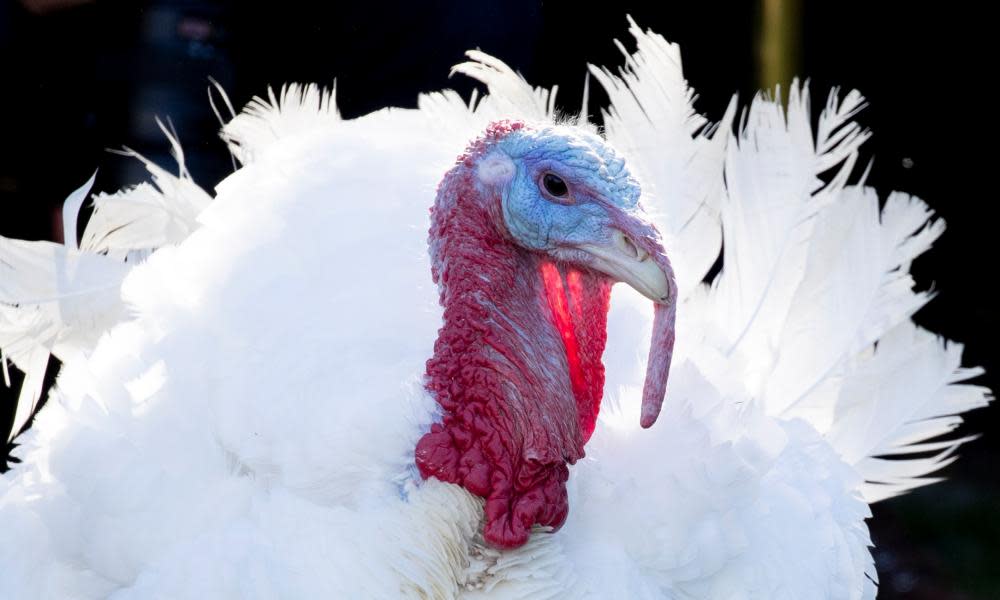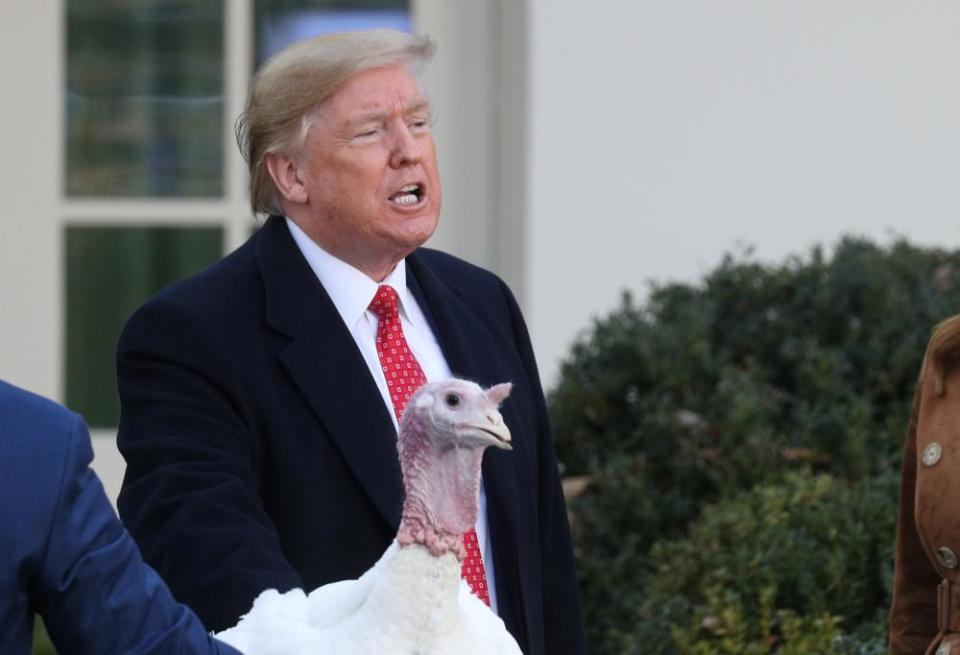Why do politicians pardon turkeys – but not people?

On Tuesday morning, North Dakota’s Republican governor Doug Burgum used the authority invested in him to ensure that Lilly, “a North Dakota turkey of fine specimen,” has a free and relaxing Thanksgiving. He wished Lilly a long and healthy life, full of “gobbling without being gobbled”.
Pleased today to pardon Lilly, a top-notch turkey from Tolna who will be back on the farm this Thanksgiving, safe to gobble without being gobbled.
Thanks to the ND Turkey Federation for its generous donations to Heaven's Helpers Soup Cafe and the Abused Adult Resource Center. pic.twitter.com/59mzETDabl— Gov. Doug Burgum (@DougBurgum) November 25, 2019
As everyone knows, the tradition of pardoning turkeys on Thanksgiving goes back as far as Abraham Lincoln (who actually pardoned his turkey on Christmas).
But it’s also causing some confusion, because governors have another power vested in them: to pardon those convicted of crimes.
Although Burgum has issued a number of pardons in recent years, the story has provided a much needed springboard for criminal justice advocates to talk about an uncomfortable fact: some governors are more comfortable pardoning turkeys than people.
“New Hampshire hasn’t pardoned anyone other than turkeys in 23 years. It’s shameful,” tweeted Anoop Prasad, an an attorney at the Asian Law Caucus, on Monday. (New Hampshire has in fact granted one pardon, to an ex-Republican party chairman.)
You have yet to pardon a SINGLE human being. New Hampshire hasn't pardoned anyone other than turkeys in 23 years. It's shameful. https://t.co/0acuxkntSS
— Anoop Prasad #FreeLiyah (@anoop_alc) November 25, 2019
Pardons can be used to restore the civil rights of a person after they have served their time – allowing them to, for example, buy a gun again, sit on a jury, or show the pardon as proof of having changed since the crime. Another type of clemency, known as a commutation, can be used to reduce a criminal sentence or let a person out of jail early. Both practices have become increasingly rare since the 1990s.
“Granting pardons in the US was a pretty normal part of the criminal justice system, until George HW Bush attacked it,” said Prasad, referencing a dog-whistle ad taken out by Bush Sr in the 1988 election. Bush Sr used the image of Willie Horton – a black man who was pardoned and subsequently raped a woman and murdered her husband – to accuse opponents of being soft on crime.
Prasad said: “You see a lot of governors who don’t exercise clemency at all any more, except for this weird act of pardoning a turkey once a year. And yet, it’s a really critical part of addressing mass incarceration that gets ignored.”
Pardons can be used to highlight some of the injustices of the criminal justice system to the public, as well as granting palpable relief to constituents.

Prasad believes that some officials only pay lip-service to wanting to end mass incarceration because it polls well, but would rather take a photo with a turkey than actually act on it. Decriminalizing marijuana has taken centre stage as a policy to stop mass incarceration, for example – yet the discussion on pardoning those who are already serving time for said crimes is scant.
“It’s politically safe to pardon turkeys. I guess it seems innocuous but it’s really a sad mockery that there are thousands of people in each state, sitting in prison, serving horrifically long sentences unjustly who really do need clemency.”
“The governor can just sign a piece of paper and free them, but they would rather take the photo op with the turkey,” he said.
Donald Trump has given commutations to twice as many people (six) as he has turkeys (three) since he became president. He has restored the rights of 17 individuals since he took office.
This piece was amended on 27 November 2019 to remove language that was wrongly attributed to Governor Doug Burgum.

